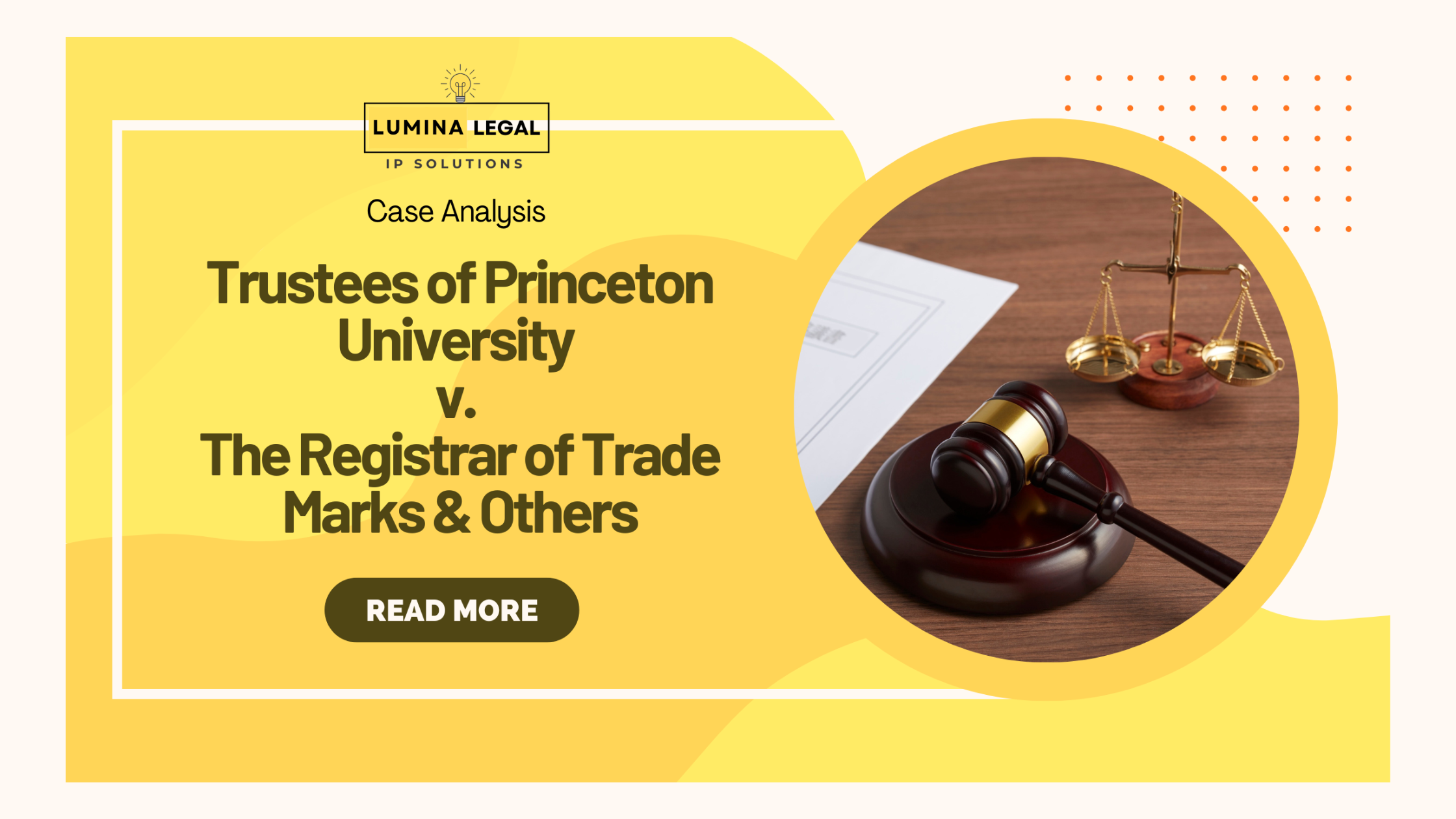INTRODUCTION
The primary function of a trademark is to enable consumers to identify and distinguish goods or services of one entity from another. A trademark embodies the goodwill, reputation, and consistent quality associated with a brand. Over time, as a trademark gains recognition, it becomes a powerful commercial symbol of trust and assurance. This growing recognition often extends beyond national boundaries, resulting in trans-border reputation. To safeguard this reputation, it becomes imperative to police trademarks and prevent unauthorized use or dilution.
The distinction between a regular trademark and a well-known trademark lies in the level of public recognition and the trust it commands across different demographics and markets. Once a mark attains this status, it enjoys an elevated degree of legal protection not only in relation to similar goods or services but also against misuse in unrelated fields. The Indian legal framework, particularly through the Trade Marks Act, 1999, provides such enhanced protection to well-known marks, ensuring that the reputation of established brands is not unfairly exploited.
WELL-KNOWN TRADEMARKS AND THE INDIAN TRADE MARKS ACT, 1999
The Trade Marks Act, 1999 formally incorporated the concept of well-known trademarks in harmony with international treaties like the Paris Convention and the TRIPS Agreement.
Under Section 2(1) (zg), a “well-known trademark” is defined as a mark which, by virtue of its reputation, is recognized by a substantial segment of the public in India such that the use of an identical or similar mark, even for unrelated goods or services, would likely create an association with the original owner and cause damage to that owner’s interests.
Further, Section 11(6) and Section 11(7) outline the parameters for determining whether a mark is well-known, which include:
- The extent, duration, and geographical area of use and promotion of the mark.
- The degree of recognition among relevant sections of the public.
- The record of enforcement, especially recognition by Indian courts or the Registrar.
- The extent of use or registration of the mark internationally.
Moreover, Section 11(10) mandates that the Registrar and the courts must protect well-known marks even with respect to goods or services dissimilar to those for which the mark is registered, to prevent dilution or unfair advantage.
THE PRINCETON ISSUE: FACTS OF THE CASE
In The Trustees of Princeton University v. The Registrar of Trade Marks & Others, Princeton University, one of the world’s most prestigious Ivy League institutions, sought to restrain an Indian educational entity from using the mark “PRINCTON” for its coaching and educational services.
The University contended that despite the slight spelling difference, the impugned mark “PRINCTON” was visually, phonetically, and conceptually identical to “PRINCETON,” and was likely to deceive or confuse students into believing an affiliation or endorsement with the globally reputed university. Princeton University asserted that its name had acquired trans-border reputation and was widely recognized in India among academic and student communities aspiring for higher education abroad.
The Indian coaching institute argued that the word “Princton” was coined independently, bore geographical resemblance, and was not intended to mislead consumers. They maintained that their services were localized and bore no real connection with Princeton University’s global operations.
ISSUES
- Whether “Princeton” qualifies as a well-known trademark under the Indian Trade Marks Act, 1999.
- Whether the use of the deceptively similar mark “PRINCTON” amounts to infringement and passing off.
- Whether the alleged geographical nature of the name “Princeton” can deprive the petitioner of exclusive rights.
- Whether the Court was justified in granting an ex-parte injunction in favor of Princeton University.
ARGUMENTS
Petitioner (Princeton University)
- Princeton University argued that “Princeton” had acquired immense goodwill and recognition worldwide, including among the Indian public. The mark had achieved distinctiveness due to its historical and academic reputation.
- The adoption of “PRINCTON” by a coaching center was a clear attempt to capitalize on the University’s reputation, thereby amounting to passing off.
- The petitioner emphasized that the trans-border reputation of the “Princeton” name entitled it to protection even in jurisdictions where the University did not have a physical campus, consistent with international IP principles and precedents in India.
Respondent (Indian Entity)
- The respondent contended that “Princton” was a distinct mark and that the petitioner could not monopolize a term that appeared geographical.
- They further argued that their business operated on a small, local scale and that there was no intention to deceive or confuse consumers.
- The respondent also objected to the ex-parte nature of the injunction, arguing that it was granted without giving them an opportunity to present their case.
COURT’S REASONING AND ANALYSIS
The Court examined the matter under the framework of Sections 2(1)(zg), 11(6), and 11(7) of the Trade Marks Act, 1999. It held that the mark “PRINCETON” had attained the status of a well-known trademark, given its global academic prestige and recognition among Indian students and educational institutions.
Relying on the doctrine of trans-border reputation, the Court observed that in the modern digital age, geographical barriers no longer limit reputation. Information about Princeton University’s excellence was readily available in India, and its name commanded instant recognition among students.
The Court drew support from two landmark precedents:
- In Daimler Benz v. Hybo Hindustan (1994 PTC 287), the Delhi High Court held that certain marks like “Mercedes-Benz” are of such high reputation that their use on dissimilar goods (like undergarments) would dilute and damage their distinctive character.
- In Whirlpool Corporation v. Registrar of Trade Marks (1998 8 SCC 1), the Supreme Court recognized that trans-border reputation extends to India even without local registration or physical business presence, thereby protecting the mark “Whirlpool” from misuse.
Applying these principles, the Court concluded that the defendant’s use of the mark “PRINCTON” was deceptively similar and likely to create confusion in the minds of the public. The deliberate alteration of one letter did not prevent infringement, as the phonetic and conceptual identity remained intact.
Ex-Parte Injunction Justification
The Court justified granting an ex-parte injunction, noting that the petitioner had established a prima facie case of infringement and passing off. The balance of convenience clearly favored Princeton University, as any delay in restraining the defendant could cause irreparable harm to its reputation and goodwill.
The Court further observed that in matters involving well-known marks, swift judicial intervention is crucial to prevent dilution and consumer deception. It was reasonable to grant interim protection ex-parte since the respondent’s continued use could have resulted in extensive commercial and reputational damage before the final hearing.
CONCLUSION
The Princeton case underscores the Indian judiciary’s commitment to protecting the sanctity of well-known marks and recognizing trans-border reputation. By restraining the use of “PRINCTON,” the Court reaffirmed that even minimal variations that lead to phonetic or visual similarity can amount to infringement, especially when the mark enjoys international acclaim.
Through reliance on Daimler Benz and Whirlpool, the judgment reiterates that the reputation of a mark is not confined by geography, and that Indian courts will extend protection to globally renowned trademarks even if they have limited or no physical presence in India. The Court’s decision to issue an ex-parte injunction further emphasizes the proactive stance needed to safeguard goodwill from irreparable harm.Ultimately, the ruling fortifies the principle that well-known trademarks deserve heightened protection in the interest of consumer trust, brand integrity, and the overall fairness of global commerce.
About the Author:
Ms. Karthika S.D is a faculty of law with specialization in subjects such as intellectual property law, international trade law, etc.

